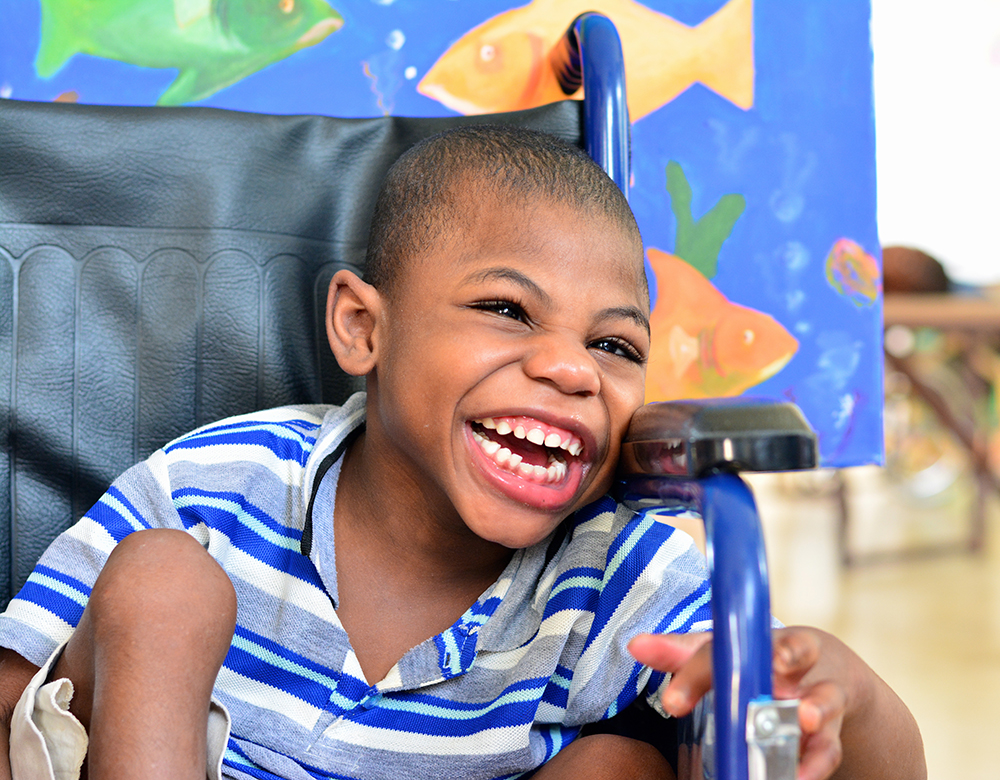Protecting Children Living with Disabilities: HaitiChildren’s Rehabilitation and Therapy Program
Children Living with Disabilities Are Particularly Vulnerable
Children living with disabilities are at greater risk of experiencing physical or sexual violence than peers without disabilities. Almost 4 times greater risk, according to the WHO and UNICEF.
A 2012 WHO report tells us that, “Factors which place children with disabilities at higher risk of violence include stigma, discrimination, and ignorance about disability, as well as a lack of social support for those who care for them. Placement of children with disabilities in institutions also increases their vulnerability to violence. In these settings and elsewhere, children with communication impairments are hampered in their ability to disclose abusive experiences.”
As Anthony Lake, Director of UNICEF, wrote in his introductory letter to the organization’s 2013 State of the World’s Children Report, “Far too often, children with disabilities are among the last in line for resources and services, especially where these are scarce to begin with. Far too regularly, they are the objects simply of pity or, worse, discrimination and abuse.”
Sadly, we see this story again and again, written on the faces and through the experiences of the children that find their way to HaitiChildren, founded by World of Children Honoree Susie Krabacher. The stigma and stereotypes surrounding disability in Haiti run deep in local culture and this, combined with the extreme poverty affecting the majority of the country (61.7% of population below international poverty line), create extremely negative outcomes for children living with disability. As one of the few organizations in the country that will take in children regardless of disability, HaitiChildren is often called for special cases – the ones that no one else will act on.
Bebe, Janise, and Nadege

Most of the children come to the organization without known histories. We can only imagine what they’ve been through in their young lives. Children like Bebe (aged 15), Janise (17) and Nadege (12), who joined the HaitiChildren family last summer. These three girls, each suffering from developmental disabilities, were found all alone on the notoriously dangerous streets of Port Au Prince. Bebe is deaf and mute, Nadege had barely any language, and Janise spoke very infrequently. Though their past largely remains a mystery, they’ve adjusted quite well to their new home and their new family. Each girl has been working with on-staff psychologists and therapists to get the care they need and they’re making progress every single day.
Bebe is in good health and enjoys being in others’ company. She enjoys watching TV and seems to her caregivers to be very wise and thoughtful. Janise still doesn’t talk much but those around her have come to understand her methods of communication. She likes to play with the other girls and is healthy with a good appetite. Nadege still cannot speak but works on her communications every day, trying to speak. She understands others’ communications and loves to dance.
Marta Lyvia
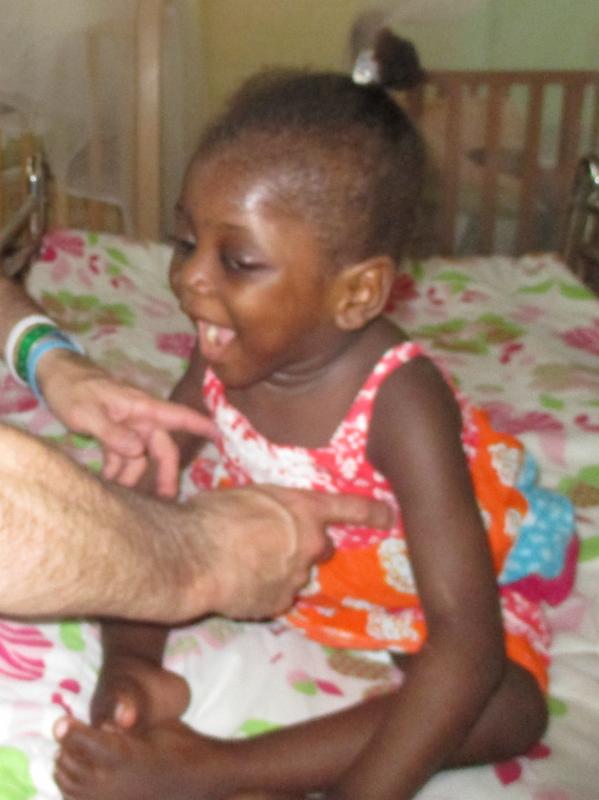 Marta Lyvia is a lovely five year old who was born blind and with cerebral palsy. She was left at a hospital in Cap Haitien, severely malnourished and close to death. A travelling doctor recommended she be placed with HaitiChildren, who welcomed her with open arms. After addressing her immediate need for care to address her malnutrition, HaitiChildren enrolled Marta Lyvia in a therapeutic program for her cerebral palsy, to help her increase her mobility.
Marta Lyvia is a lovely five year old who was born blind and with cerebral palsy. She was left at a hospital in Cap Haitien, severely malnourished and close to death. A travelling doctor recommended she be placed with HaitiChildren, who welcomed her with open arms. After addressing her immediate need for care to address her malnutrition, HaitiChildren enrolled Marta Lyvia in a therapeutic program for her cerebral palsy, to help her increase her mobility.
Since joining HaitiChildren eight months ago, Marta Lyvia has happily gained weight, has started talking, and is making great progress with her therapy. Now that she’s receiving the daily love and care that every child deserves, she’s truly blossoming. Her caregivers describe her as a very sweet girl who loves being tickled!
Nono
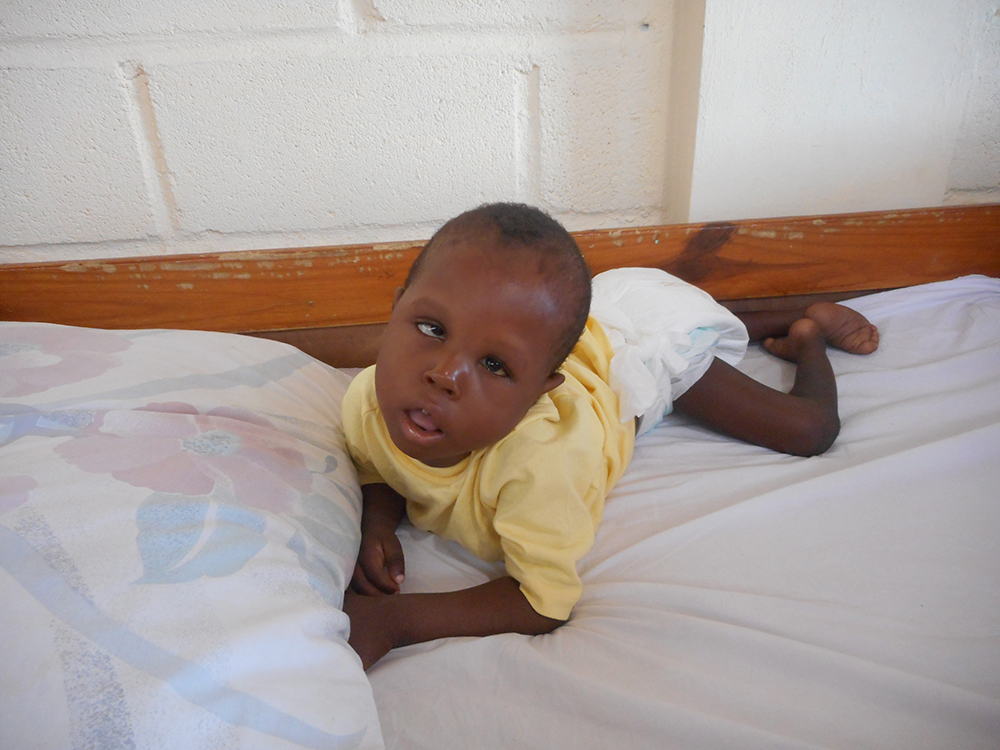 Nono is two years old and was born blind and with club feet (a congenital deformity of the legs and feet that prevents a child from being able to place the soles of his feet flat on the ground). He was left on the doorstep of an unlicensed, dilapidated orphanage that was condemned as unfit and closed by the government of Haiti. Because of his disabilities, it was hard to find a new home for Nono.
Nono is two years old and was born blind and with club feet (a congenital deformity of the legs and feet that prevents a child from being able to place the soles of his feet flat on the ground). He was left on the doorstep of an unlicensed, dilapidated orphanage that was condemned as unfit and closed by the government of Haiti. Because of his disabilities, it was hard to find a new home for Nono.
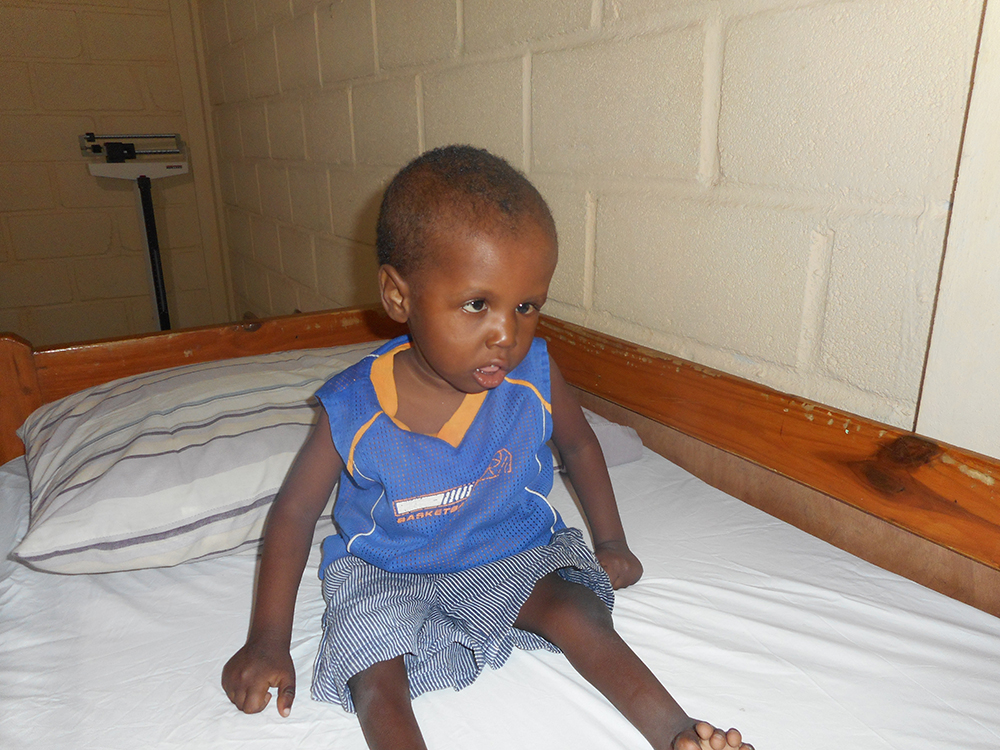 The Ministry of Social Affairs contacted HaitiChildren about Nono and the organization quickly responded that he was welcome at their home. Several months of bureaucratic red tape later, Nono was finally placed with HaitiChildren. They later found out that during the time HaitiChildren was anxiously awaiting his arrival, Nono had spent several weeks living in a government office, without proper care or attention.
The Ministry of Social Affairs contacted HaitiChildren about Nono and the organization quickly responded that he was welcome at their home. Several months of bureaucratic red tape later, Nono was finally placed with HaitiChildren. They later found out that during the time HaitiChildren was anxiously awaiting his arrival, Nono had spent several weeks living in a government office, without proper care or attention.
Luckily, Nono made it safely to his new family at HaitiChildren and has been living there happily now for eleven months. He is a happy little boy and is receiving lots of love and therapeutic care at the HaitiChildren Rehabilitation and Therapy Center.
The importance of Rehabilitative and Therapeutic Care for Children with Disabilities
Children with disabilities become more and more vulnerable as they grow up without proper care for their conditions. Many face lives of immobility and complete dependence, leaving them vulnerable to abuse and neglect in their homes or on the streets.
The Rehabilitation and Therapy Center at HaitiChidlren provides these children with the best protection possible – helping them develop optimum mobility and self-care given each of their unique abilities. The center also provides mobility aids like wheelchairs and walkers for those who need them and the therapy and training they need to use these aids effectively.
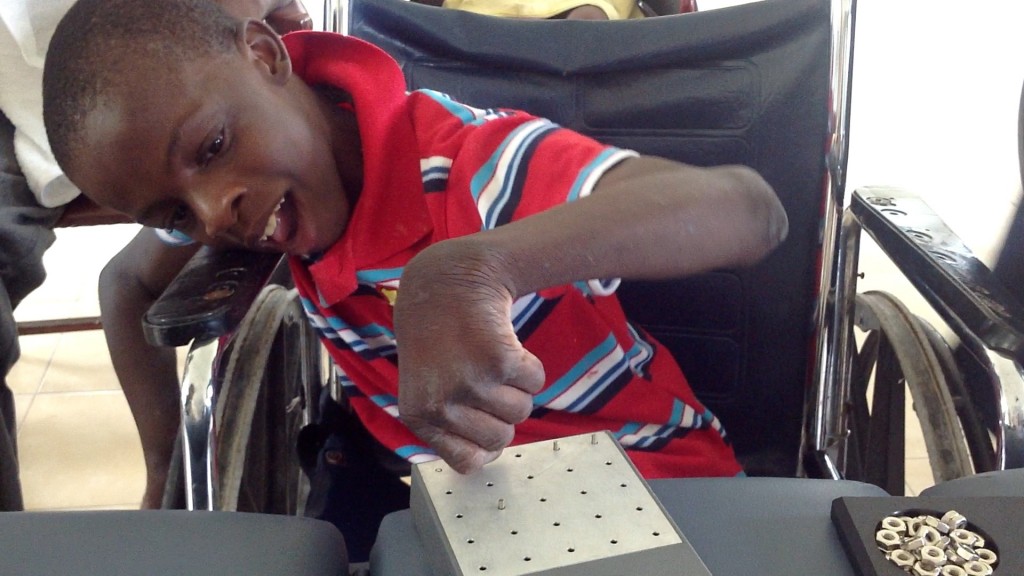
Currently staffed by five physical therapy technicians and a certified physical therapist, the Rehabilitation and Therapy Center at HaitiChildren serves 65 children with disabilities living permanently with the organization and additional children from the surrounding towns – free of charge. The center is one of the most important aspects of these children’s lives. Each day the children are challenged to reach their highest potential – to strive to be the best versions of themselves.
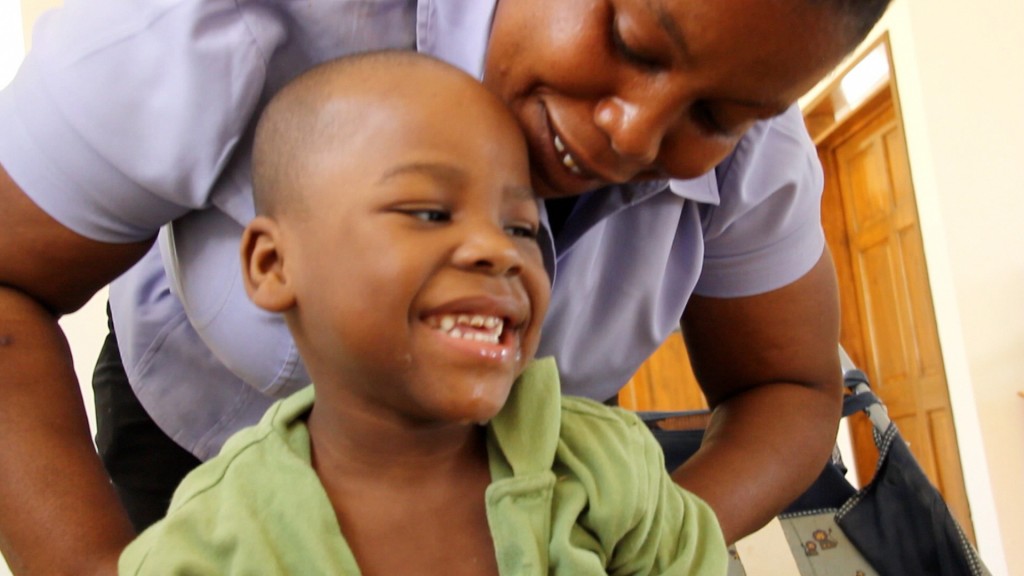
Most of these children were neglected or abused and then left to die alone. They have overcome so much in their short lives and their disability means they’ll face many more challenges in the future. But now they have found a permanent home. With the loving care of the HaitiChildren family, these children will thrive. Many are or will attend school and some will even attend university. They will accomplish so much more than anyone ever imagined possible, now that they are protected and loved.
You can help!
HaitiChildren is currently looking for a sponsor to help them add an additional therapist to their staff and serve more children. Learn more here >>
Learn more about Susie Krabacher and HaitiChildren here >>
This story was originally posted as part of our January 2016 Child Protection Blog Carnival. Read more posts from the Blog Carnival here >>

